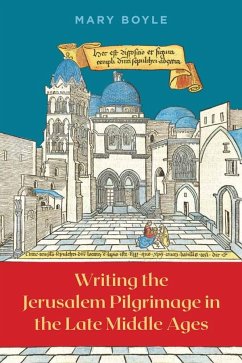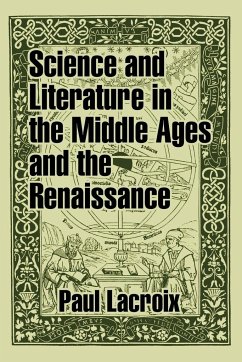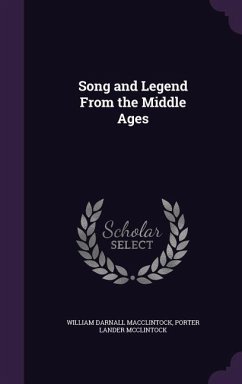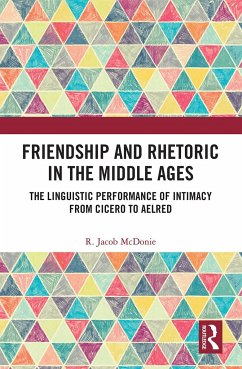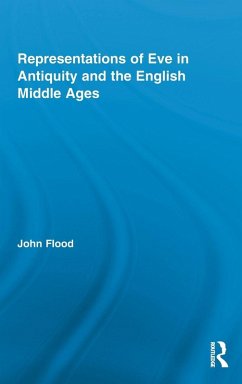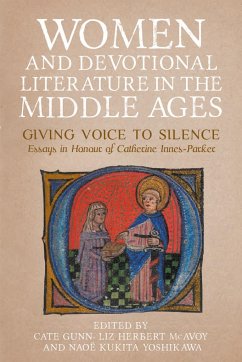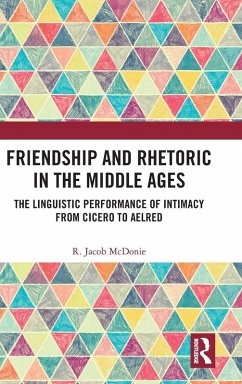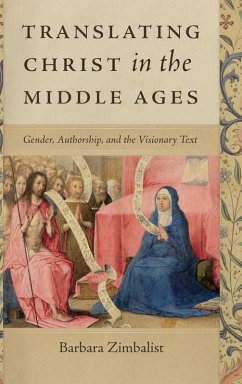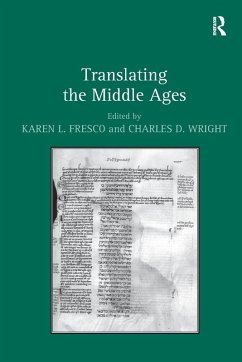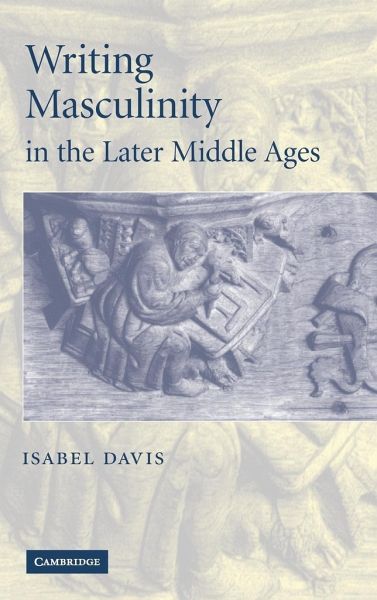
Writing Masculinity in the Later Middle Ages

PAYBACK Punkte
53 °P sammeln!
Davis presents a genuinely fresh perspective on ideas about gender, labour and domestic life in Medieval Britain.Medieval discourses of masculinity and male sexuality were closely linked to the idea and representation of work as a male responsibility. Isabel Davis identifies a discourse of masculine selfhood which is preoccupied with the ethics of labour and domestic living. She analyses how five major London writers of the late fourteenth and early fifteenth centuries constructed the male self: William Langland, Thomas Usk, John Gower, Geoffrey Chaucer and Thomas Hoccleve. These literary text...
Davis presents a genuinely fresh perspective on ideas about gender, labour and domestic life in Medieval Britain.
Medieval discourses of masculinity and male sexuality were closely linked to the idea and representation of work as a male responsibility. Isabel Davis identifies a discourse of masculine selfhood which is preoccupied with the ethics of labour and domestic living. She analyses how five major London writers of the late fourteenth and early fifteenth centuries constructed the male self: William Langland, Thomas Usk, John Gower, Geoffrey Chaucer and Thomas Hoccleve. These literary texts, while they have often been considered for what they say about the feminine role and identity, have rarely been thought of as evidence for masculinity; this study seeks to redress that imbalance. Looking again at the texts themselves, and their cultural contexts, Davis presents a genuinely fresh perspective on ideas about gender, labour and domestic life in Medieval Britain.
Table of contents:
Introduction: writing masculinity in the later middle ages; 1. The masculine ethics of Langland's Piers Plowman; 2. Them and Usk: writing home in the middle ages; 3. John Gower's 'strange places': errant masculinity in the Confessio Amantis; 4. 'And of my swynk yet blered is myn ye': Chaucer's Canon's Yeoman looks in the mirror; 5. Autobiography and skin: the work of Thomas Hoccleve; Bibliography.
Medieval discourses of masculinity and male sexuality were closely linked to the idea and representation of work as a male responsibility. Isabel Davis identifies a discourse of masculine selfhood which is preoccupied with the ethics of labour and domestic living. She analyses how five major London writers of the late fourteenth and early fifteenth centuries constructed the male self: William Langland, Thomas Usk, John Gower, Geoffrey Chaucer and Thomas Hoccleve. These literary texts, while they have often been considered for what they say about the feminine role and identity, have rarely been thought of as evidence for masculinity; this study seeks to redress that imbalance. Looking again at the texts themselves, and their cultural contexts, Davis presents a genuinely fresh perspective on ideas about gender, labour and domestic life in Medieval Britain.
Table of contents:
Introduction: writing masculinity in the later middle ages; 1. The masculine ethics of Langland's Piers Plowman; 2. Them and Usk: writing home in the middle ages; 3. John Gower's 'strange places': errant masculinity in the Confessio Amantis; 4. 'And of my swynk yet blered is myn ye': Chaucer's Canon's Yeoman looks in the mirror; 5. Autobiography and skin: the work of Thomas Hoccleve; Bibliography.





